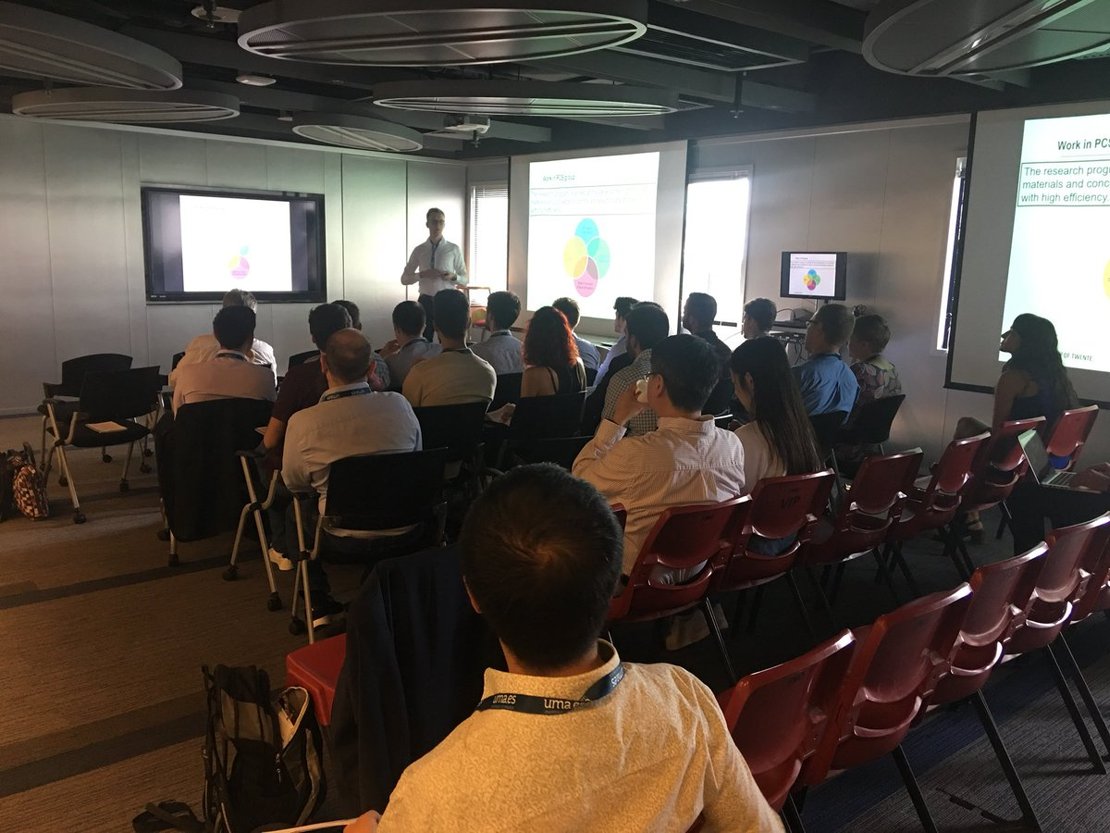Eurasiacat final conference in Hong Kong
The Erasmus Mundus EurasiaCat project, coordinated by the University of Malaga, which has involved more than 60 mobilities between Europe and Asia, the majority for students of various engineering master's degrees, is coming to an end.
During the 11th, 12th and 13th of July the final project meeting has taken place in Hong Kong, and more than 15 students from the University of Málaga have participated in it. This Erasmus Mundus project started in 2014, with a meeting of all the partners in Malaga. The consortium consists of 6 European and 6 Asian academic institutions: Hong Kong University of Science and Technology (HK), National Tsing Hua University (TW), National Taiwan University (TW), Nanyang Technological University (SG), University of Macao ( MO), National University of Singapore (SG), Higher Council for Scientific Research (ES), University of Trieste (IT), Sorbonne University (FR), Adam Mickiewicz University (PL), University of Twente (NL) and the University of Málaga who is the coordinator of the network. During the four years of the project’s life, and thanks to the funding received from the European Commission that has been over one million euros, it has been possible to carry out more than 60 mobilities between Asian and European institutions, in such a way that European students have made training stays in Asian institutions, and Asian students have also been able to come to Europe. These mobilities have been distributed as follows: 35 for master students, 12 for doctorate students, 3 for postdoctoral students, and 10 for teachers. Students of the University of Málaga have benefited the most from this program, since 24 of these mobility scholarships have been distributed among them, the majority being students of chemical engineering, industrial and mechatronics masters.
The professors and many of the students participating in this program have had the opportunity to meet this week in Hong Kong to evaluate the actions carried out, to know firsthand the work done by the students, which have involved the completion of their master's degree projects or doctorates, and to establish future collaborations.
All have highlighted their satisfaction with this program, which has brought these two continents so far away, and which has been a great opportunity, both professionally and personally, for the participating students.
Undoubtedly, many academic collaborations have been established among the 12 institutions involved that will last over time.






